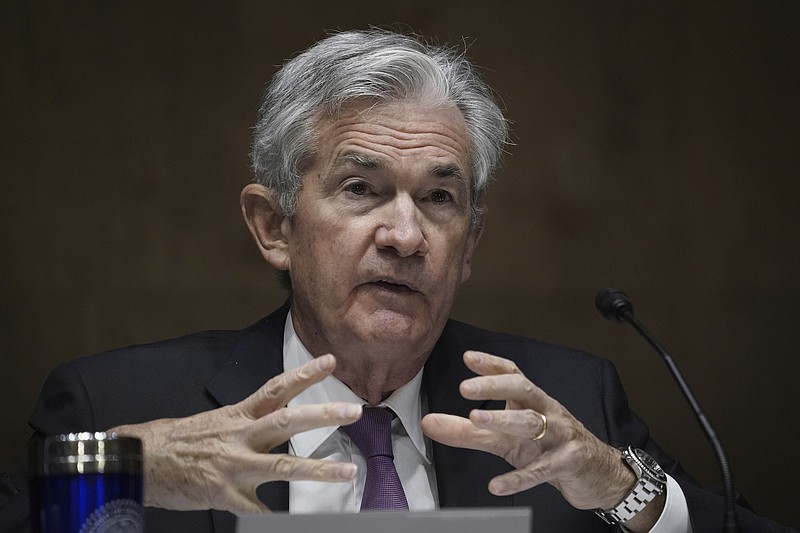Lost in the melodrama of Rose Garden superspreading, West Wing outbreaks, "Evita/Covita" balcony moments, vice presidential fly sightings and claims of miracle therapies was Federal Reserve Chairman Jerome Powell's desperate call for Congress to pass a "robust" stimulus package and not fret about "overdoing it."
"Too little support would lead to a weak recovery, creating unnecessary hardship for households and businesses," he said last Tuesday in prepared remarks to a meeting of business economists. The bottom line? Failing to invest sufficiently right now would lead to a rash of "household insolvencies and business bankruptcies" that would further stagger the economy and hold back growth.
One of the things Congress got right this year was to approve on a bipartisan basis trillions of dollars in COVID-related relief in March, which was still relatively early in the pandemic. The Coronavirus Aid, Relief, and Economic Security, or CARES, Act was big and broad; one might even call it incautious as it included $1,200 checks to individuals with qualifying incomes and expanded unemployment insurance benefits. The pandemic, the shutdown and job losses were so devastating that this was the best way available to spare the country from full economic collapse.
The House-approved $2.2 trillion Health and Economic Recovery Omnibus Emergency Solutions, or HEROES, Act comes about as close to Chairman Powell's vision as imaginable in its breadth and size. Unfortunately, it has twice now gotten caught up in partisan politics with Republicans seemingly most fearful that it's either: A.) too big, which demonstrates that they aren't paying attention to Powell or his well-grounded fears of the pandemic's continued fallout or B.) it provides aid to states struggling with a pandemic-related drop in tax revenue including - and brace yourself for a shock - states run by Democrats. The prospect of helping "blue" states has seemingly sent many in the prim and proper GOP, including President Donald Trump, to their fainting couches.
Frankly, the whole thing has the smell of a contrived reality television show missing only a catch phrase like "you're fired." There are certain issues to discuss another day, including the nation's deficit, tax fairness, government spending priorities, even concerns about public employee pensions, but this is not the time for it. The nation needs that fire hose again. Don't take our word for it. Take that of Mr. Powell whose job it is to provide the nation with a stable and productive financial system.
It's no surprise that such a major undertaking has been caught up in the politics of an election that is now little more than three weeks away. But here's another that ought to be as prominent on the calendars in D.C.: Stubbornly high unemployment rates across the nation including the 840,000 workers who filed for initial benefits just last week, a number four times pre-pandemic averages. Or how about this one: a rise in COVID-19 cases in 39 states. The outlook is so worrisome in places like Wisconsin that some virus-related restrictions are back in place. That's what setting a seven-day record for fatalities will do for you. Polls show Americans have already rendered a harsh judgment on Mr. Trump's handling of the coronavirus crisis, a continued refusal to follow Mr. Powell's advice and give a major boost to the economy will likely cause them to be unsparing on Nov. 3.
The Baltimore Sun
